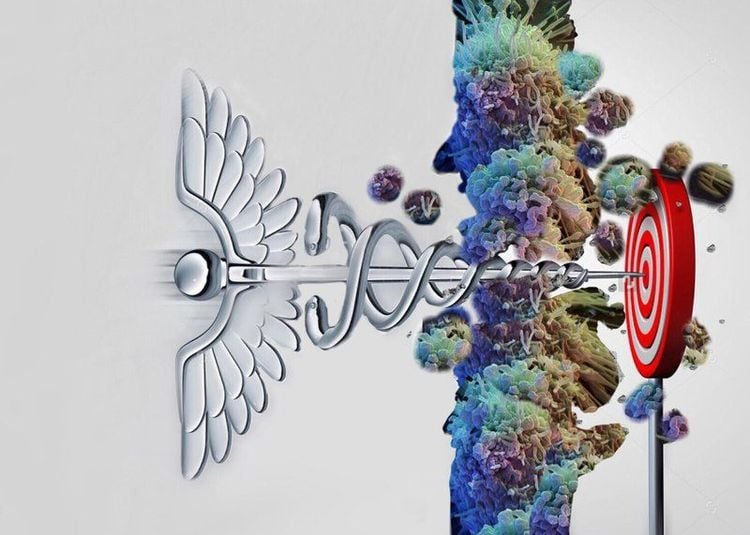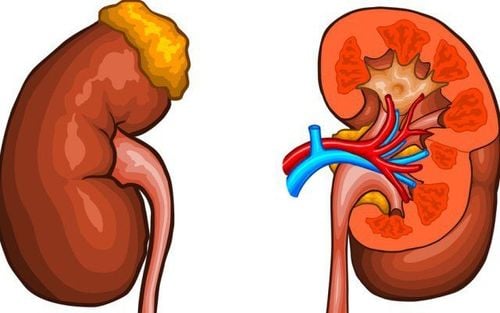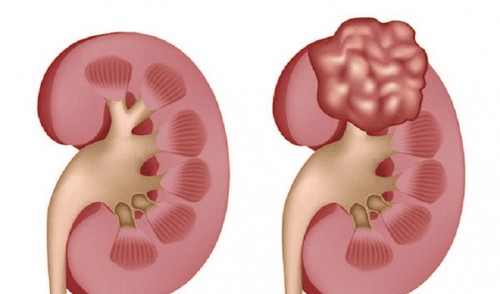This is an automatically translated article.
When kidney cancer has metastasized, it means it has spread from the kidney to other parts of the body. Bone is a common site for metastatic cancer cells.1. How does metastatic kidney cancer affect the bones?
When kidney cancer metastasizes to bones, it can cause pain and make bones so weak that they can break. Because there are many causes of too much calcium in the blood, this is a dangerous condition also known as hypercalcemia.2. Treatment for bone cancer

Trị liệu đích là một trong số những phương pháp được sử dụng để điều trị ung thư di căn xương
Targeted therapy The drugs in this therapy are designed to kill cancer without harming healthy cells. Tyrosin kinase activity inhibitors (TKI, tyrosine kinase inhibitors) target proteins that help cancer cells and tumor blood vessels grow. The drugs in this therapy include:
Immunotherapy Also known as biologic therapy, the drugs in this therapy are made using substances made in a laboratory or by the patient's own body to fight kidney cancer. There are several drugs in this group including:
Radiation In this treatment, a high-energy X-ray machine destroys cancer cells inside the patient's body. This therapy can also reduce pain in the bones and prevent weak bones from breaking. If the patient has broken a bone, killing cancer cells with radiation will help the bone heal faster.
Surgery Surgery to remove cancer from your bones can also help relieve pain, prevent fractures, and help you move around more easily.
Bone-strengthening drugs Some medications can make bones stronger and prevent pain and fractures.
Bisphosphonates. Medications such as zoledronic acid (Zometa) slow the action of cells that break down bone, which in turn slows bone damage, prevents fractures, and lowers the amount of calcium in your blood. Denosumab (Xgeva). Like bisphosphonates, this drug also helps prevent bone fractures.
3. How to manage symptoms

Chăm sóc giảm nhẹ ung thư bao gồm: Phẫu thuật, Xạ trị, Thuốc giảm đau, Kỹ thuật thư giãn, Hỗ trợ tinh thần
Surgery Radiotherapy Pain relievers and other medications Relaxation techniques Mental support. Patients should ask their doctor about palliative care services at a hospital or cancer treatment and care center.
4. Living with cancer in the bone
You will feel anxious or scared if you know that the cancer has spread to the bones. Therefore, ask your doctor about all possible treatment options.If you've tried several treatments and haven't stopped your cancer from spreading to your bones, ask your doctor about enrolling in clinical trials. These trials test new treatments for people with renal cell cancer, but these new therapies are not for everyone. Therefore, patients should ask their doctor to see if their condition is suitable for new treatments being tested.
If you have a need for consultation and examination at Hospitals under the national health system, please book an appointment on the website to be served.
Reference source: webmd.com
Please dial HOTLINE for more information or register for an appointment HERE. Download MyVinmec app to make appointments faster and to manage your bookings easily.













